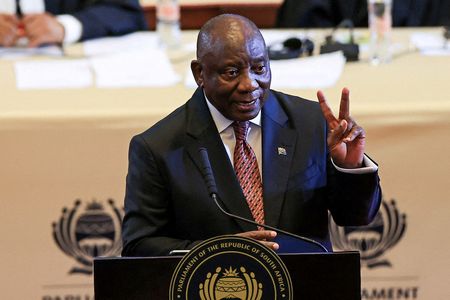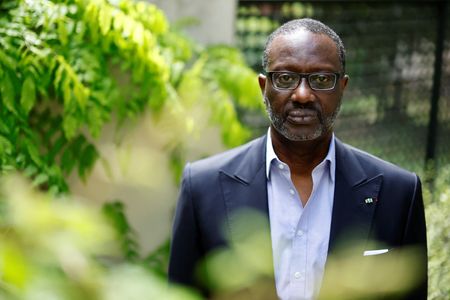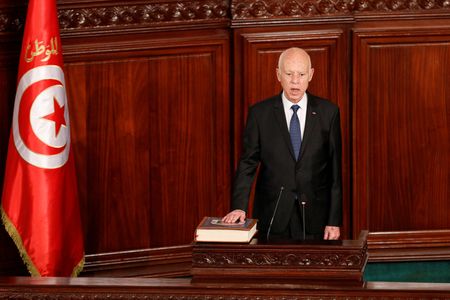By Maxwell Akalaare Adombila
ACCRA (Reuters) -Australia-based miner Atlantic Lithium said it has appealed to Ghana’s government for fiscal concessions to salvage its Ewoyaa project, as plummeting global prices threaten the viability of what would be the West African nation’s first lithium mine.
“We have done the maths and it doesn’t make sense at all,” Ahmed-Salim Adam, Atlantic Lithium’s general manager, told Reuters.
“We have written to the minister of lands and natural resources for urgent help on the fiscals. If not, the project cannot proceed,” he added.
Prices of the critical battery metal have tumbled more than 80% from peaks seen in November 2022, as a supply glut coincided with slower-than-expected electric vehicle adoption rates globally.
Ghana, Africa’s lead gold producer, granted the Australian miner a 15-year lease to establish the mine by late 2024, hoping to capitalize on the EV boom.
The Ewoyaa project, with an estimated resource of 35-40 million tonnes of lithium-bearing ore, is positioned to become one of the top 10 global spodumene concentrate producers, according to Atlantic Lithium, making it a significant new supply source outside the industry-dominant markets of Australia, Chile and China.
It is estimated to produce around 360,000 tons of lithium annually, which will be exported to the U.S.
However, construction of the project stalled on delayed parliamentary ratification, with the lithium price collapse now further complicating its viability and the company’s development timeline.
Despite a recent price recovery, driven by normalizing global auto production, industry analysts remain cautious.
While “EV-led demand growth remains strong, it continues to be overwhelmed by mine supply growth,” said Tom Price, Panmure Liberum’s head of commodities, noting that U.S. President Donald Trump’s 25% tariff further dampened prospects.
West Africa’s relatively recent entry to lithium also means investors will prefer to stay in established markets when prices are weak, Price said.
In its appeal to Ghanaian authorities, Atlantic Lithium said the project’s internal rate of return has plunged from an initial 105% to just 13.6%. “Nobody is going to put their money in that. It should have been 30% to make sense,” Adam explained.
Government officials from Ghana’s mining sector regulator and relevant ministries did not respond to requests for comment.
CONCESSIONS SOUGHT
The company is seeking several fiscal adjustments, including reducing royalty rates from 10% to 5% – matching Ghana’s gold mining sector – or implementing a sliding scale tied to lithium prices. It also proposed revisions to the 32.5% corporate income tax rate and removal of import duties on capital equipment.
Atlantic Lithium said it has spent $70 million since 2016 but was now facing “significant challenges” that risk stalling the project. The situation has forced the miner to dramatically scale back operations, dismissing 25 employees in October with plans to lay off approximately 50 more in May.
“We will maintain only a skeletal team,” Adam said.
He said while parliamentary ratification remains critical, construction cannot begin without addressing the fiscal framework. “Even if we get ratification done, we can’t get it off the ground.” Adam concluded.
(Reporting by Maxwell Akalaare Adombila; Editing by Veronica Brown and David Evans)






